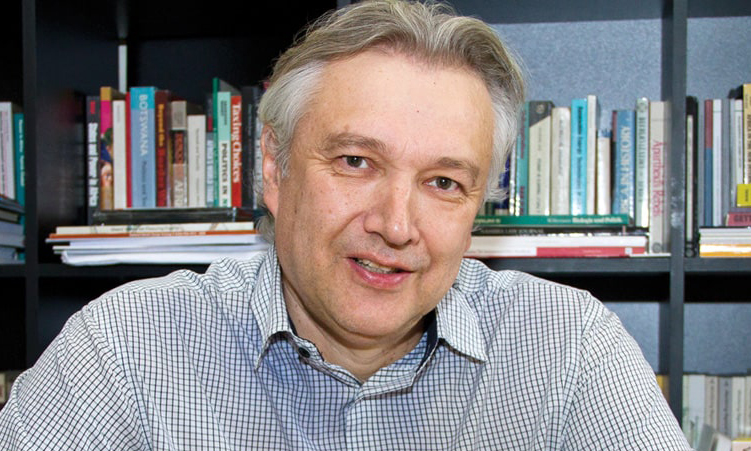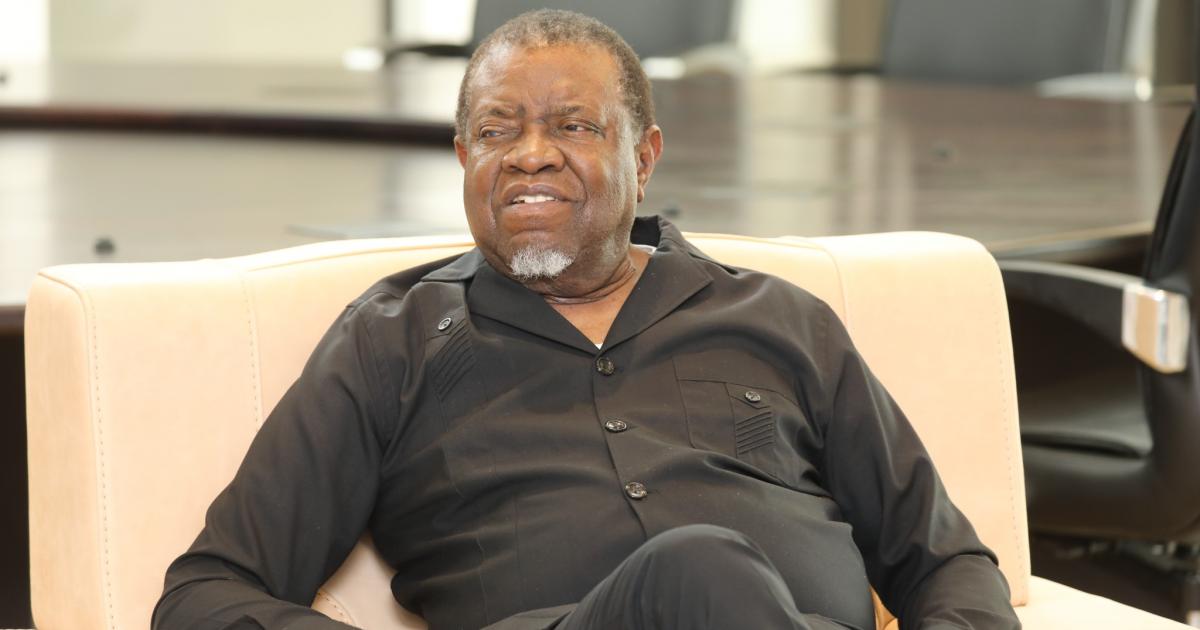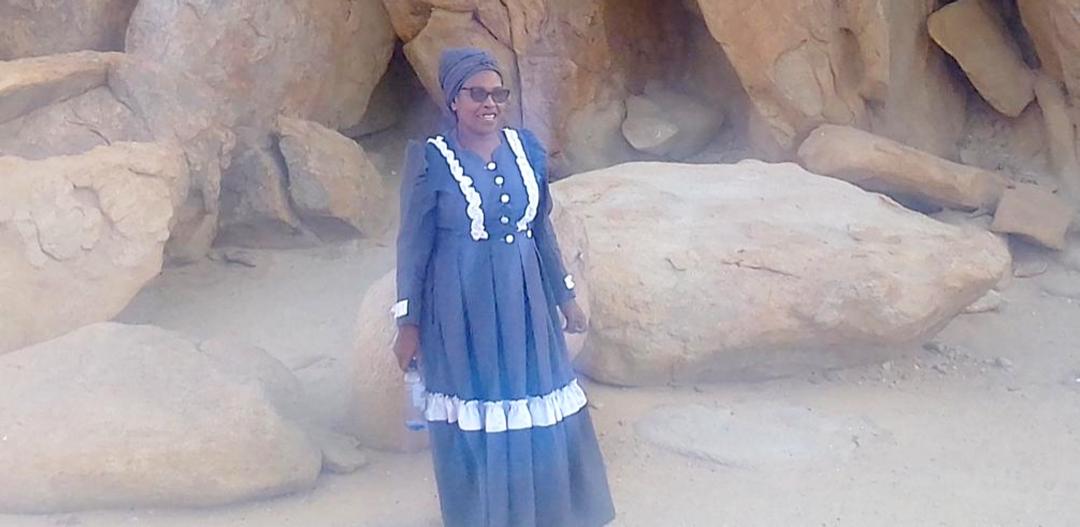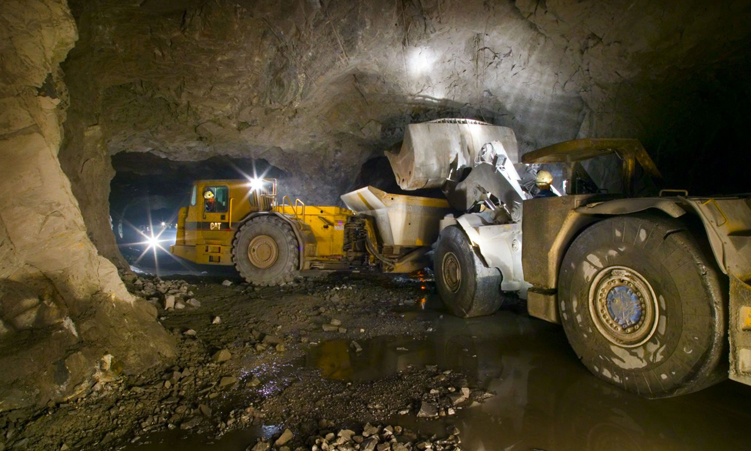The Namibian Presidency has once again shown disdain for the role of civil society and the media, seemingly to defend a vanity award.
The presidency launched a personal attack on the director of the Institute for Public Policy Research (IPPR), Graham Hopwood, who urged president Hage Geingob not to accept an award by the Africa Energy Chamber (AEC) at a conference in Cape Town last week.
Presidential spokesperson Alfredo Hengari disparagingly labelled Hopwood (and other unnamed researchers) as “dial-a-quote analysts” who the president “does not need lectures from… on which awards to accept”.
Such an attitude suggests that Geingob’s team do not appreciate the role of researchers and independent journalism. To Geingob’s credit, just last week he buttressed his support for media freedom with a somewhat surprise attendance of the Namibia Editors’ Forum media awards.
Sadly, the disparaging remarks by his spokesperson run contrary to the president’s stance that free speech is critical to a functioning democracy and good governance.
The personal attacks from his spokesperson also point to hypocrisy from a leadership which often complains that debate must be civil and focused on issues rather than personalities.
Hopwood based his request on solid information that the AEC lifetime award and the conference were spearheaded by NJ Ayuk (also known as Njock Ayuk Eyong), a corruption-tainted oil industry lawyer who may well be a convicted fraudster.
Information points to Ayuk as being the same person convicted in the United States of America under the name Njock Ayuk Eyong for, among others, impersonating a lawmaker.
What is wrong in warning, as IPPR did, that associating with tainted characters sends a wrong message that Namibia’s oil industry could end up being corrupt as has happened in Angola, Equatorial Guinea and Nigeria?

Ayuk, who AEC has denied was convicted in the US, was identified as a key player in the network of Gabriel Mbega Obiang Lima, Equatorial Guinea’s former oil minister and son of the country’s president, Theodoro Obiang Nguema Mbasongo.
Mbasongo has for decades presided over massive corruption that left the majority of the population living in underdevelopment despite Equatorial Guinea’s oil making it one of the richest countries in the world if only the resources were shared equitably.
The Organised Crime and Corruption Reporting Project (OCCRP) reported in 2021 that Ayuk, through his Centurion Law Group, represents an important channel for winning oil-related contracts in Equatorial Guinea.
Despite his tainted image, the ministry of mines and energy has sought Ayuk’s services for legal advice, suggesting he will play a key role in setting the foundation for the governance architecture of Namibia’s nascent oil industry.
The lifetime award for commitment to developing Namibia’s energy (particularly oil) industry seems odd. Geingob has hardly done anything extraordinary, with no clear legal framework in place while the extraction of oil is several years away.
One would have thought president Geingob would appreciate advice from impeccable researchers, such as the IPPR. After all, he has burnt his reputation many times through close association with dubious characters – be it home-grown wheeler dealer Knowledge Katti or his buddy Ernest Adjovi, who conned Namibia out of around N$23 million (now at no less than N$55m if the 20% interest a year since 2016 that the court ordered paid back is not compound).
Then there was the ill-fated SME Bank whose main drivers from Zimbabwe, such as Enoch Kamushinda, got away with more than N$200 million; to his own links to the French Areva uranium deal for which Geingob received N$3 million that he declared to parliament as a consultancy fee to help UraMin renew their licence before selling Trekkopje to Areva, now known as Orano.
As long as he is president operating in the name of Namibian citizens, Geingob can ill-afford dismissing researchers as mere “dial-a-quote analysts”. They are not lecturing but providing cold hard facts that are useful for sound decisions.
Laying the right foundation is critical to ensuring that any oil revenue is used in the best interests of the majority of the population.
Stay informed with The Namibian – your source for credible journalism. Get in-depth reporting and opinions for
only N$85 a month. Invest in journalism, invest in democracy –
Subscribe Now!






